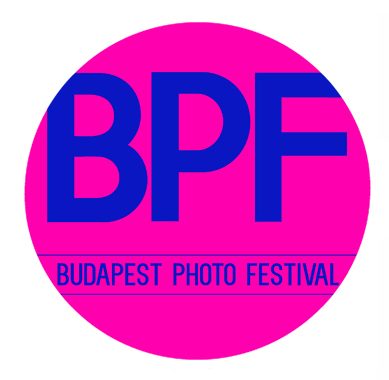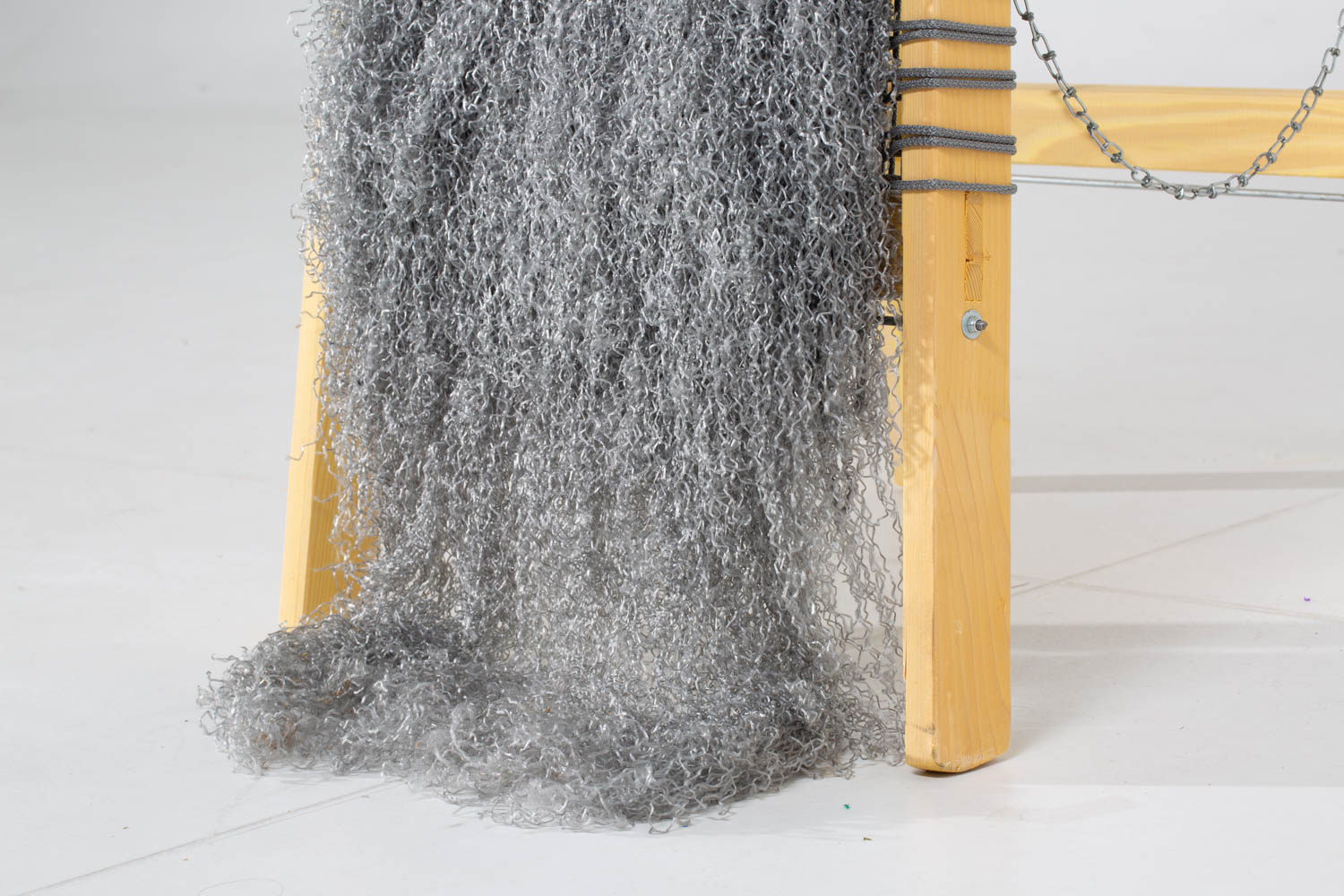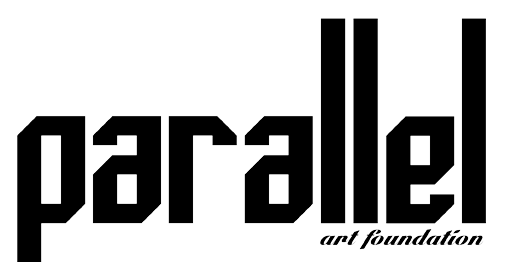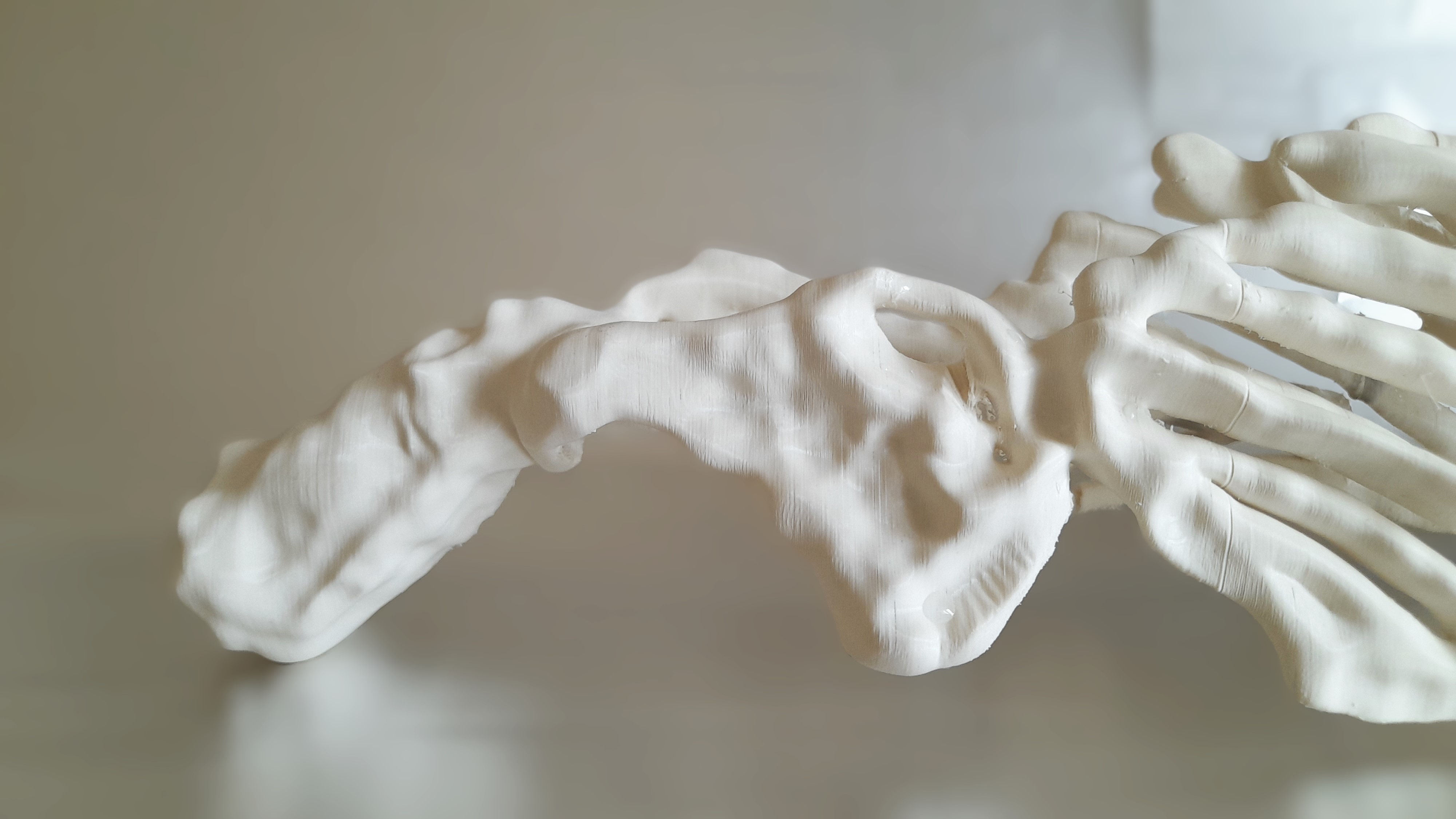

Lakin Ogunbanwo [NGR]
are we good enough
2024.04.03–29.
Cairo Contemporary
The exhibition is a part of the official program of Budapest Photo Festival 2024.
Lakin Ogunbanwo’s project began in 2012 when he first became interested in the traditional dress of ethnic groups in Nigeria: the Yoruba, Ibo and Hausa-Fulani and others. Dress is a very clear indicator of ethnic identity in Nigeria and Ogunbanwo has observed the younger generation creating contemporary hybrids of western and traditional, reinventing the visual codes through which they publicly communicated aspects of themselves.
Ogunbanwo’s new body of work is a series of enigmatic portraits that explore identity. By purposefully obscuring the individual identity of the sitters, the artist draws attention to what it is that defines an individual within a larger cultural collective; who this individual may be and how they want to be perceived. He has pared down the communicative aspect of the project to the power of the hat – ‘that witty but vital accessory in fashion’ – to speak of masculine identity. In Ogunbanwo’s signature style of elegant minimalism the aesthetic focus in this series, as in the rest of his work, is on light, texture, shape and silhouette.
Born in Lagos, Nigeria in 1987 Lakin Ogunbanwo studied law before beginning work as a photographer in 2012. His work has been featured in the Times New York, Harpers Bazaar, British GQ and Riposte Magazine. His exhibitions include Lagos Photo Festival; 1:54 Contemporary African Art Fair, London and Grid Photo Biennial, Cape Town South Africa. Ogunbanwo has been recognised by the British Journal of Photography as one of the Top 25 Photographers of 2015 in their annual Ones to Watch edition.

Curator: Gábor Pintér
Supported by Erzsébetváros Municipality - Cultural District Catalyst Grant
Cooperation partner: Bischitz Johanna Integrated Human Service Centre
www.parallelfoundation.com
instagram.com/Cairo.Contemporary
instagram.com/parallel.art.foundation


![]()
Nóra Szabó
Honey bones
Cairo Contemporary
1071 Budapest, Lövölde tér 7.
2024, May 2-26
On view 0-24h
The bone sculptures in Nóra Szabó’s installation are characterized by an uncanny mix of the aesthetics of water erosion on geological formations and the traces of the fourth industrial revolution. They are like skeletal structures of a kind of speculative future, while also bearing the mark of fossilized remnants of the past. They seem to break free from the grip of linear time, presenting both the yet-to-be and the no-longer-existing. Their pseudo-archeological appearance reminds us of humanity's ongoing search for meaning amidst the changing narrative of existence. In each of their pieces lurks some anomaly that contradicts the teleological approach to evolution, presenting a dynamic process shaped by different environmental influences, genetic mutations and chance events.
Nóra Szabó's art is an immersion in the contemporary visual representation of the human body. She explores the possible connections between the radical change in the concept of the body and the development of technology. Her research draws primarily on a framework of post-humanist theories. Szabó argues that the natural body undergoes a process of change when it encounters artificial materials, as a result of which the concept of the human body is a hybrid; the artificial is intertwined with the organic. Therefore, he relies on an intermediate basis for his work, combining analogue making with digital techniques.
Nóra Szabó is currently a PhD student at the Hungarian University of Fine Arts. She is a member of the Skurc Group art association in Budapest and a Barcsay Prize-winning artist. He was nominated for the Kepesita Collection Prize in 2020 and 2023. She has had solo and group exhibitions at AQB Project Space, Budapest; Sopa Gallery, Kosice; PINCE, Budapest; and the Museum of Fine Arts, Budapest.
///
Curator: Gábor Pintér
Supported by Erzsébetváros Municipality - Cultural District Catalyst Grant
Cooperation partner: Bischitz Johanna Integrated Human Service Centre


instagram.com/Cairo.Contemporary
instagram.com/parallel.art.foundation

Erik Tollas - Zsófia Magdolna Nagy
Dancing with the SCOBY
Cairo Contemporary, Budapest
1071 Budapest, Lövölde tér 7.2024, March 1-29
Erik Tollas and Zsófia Magdolna Nagy's kombucha happening focuses on the observation of time, in which opposites are linked: movement with immobility, plastic with living organisms, the visible with the invisible, installation with still life.
Erik Tollas (1981) graduated from Eszterházy Károly College, Faculty of Drawing and Visual Communication, then from the University of Pécs, Faculty of Visual Arts, Painting Department. He is interested in the totem as a symbol system and its various abstractions, where the work becomes the pure nature of colour and form through the conscious reduction of gesture. While creating, he creates instinctive drawings, automatic signs and sign systems, in which the mark-making is linked to natural phenomena and becomes a prayer to Mother Earth.
Zsófia Magdolna Nagy (1989) also graduated from the Faculty of Visual Arts of PTE, Painting Department. Her work combines different media and materials, including painting, sculpture and installation. His monochrome moulded canvases explore the image and its borderlands. His experimental works combine different materials to create various hybrid objects. Objects peeled of their function in her work are recycled into a reinterpretation, thereby fixing the change that results from their passing.
Both artists are members of BUMm - Budakalász Studio House.
///
Curator: Gábor Pintér
Supported by Erzsébetváros Municipality - Cultural District Catalyst Grant
Cooperation partner: Bischitz Johanna Integrated Human Service Centre
instagram.com/Cairo.Contemporary
instagram.com/parallel.art.foundation



Tünde Fülöp
The Thread of my Life
Cairo Contemporary, Budapest
1071 Budapest, Lövölde sq 7.
2024, February 2-25.
In her work, Tünde Fülöp translates the psychosocial development theory of psychologist Erik Erikson into the language of textiles. Reflecting on Erikson's work entitled The Eight Stages of Our Life, each ladder corresponds to a stage of development. The sections between the rungs serve as a kind of alternative weaving frame, and the structures woven between them represent the self.
Tünde Fülöp graduated from the Moholy-Nagy University of Art and Design with a degree in Fashion and Textile Design, then Teacher of Design and Visual Arts. Her thesis, The Thread of My Life, was created in 2020 and won the prize of MANK in 2021 at the VII International Triennial of Textile Art in Szombathely. In addition to her solo exhibition at K28 Gallery, her works have been exhibited at the Hungarian Academy in Rome, MŰTŐ Gallery and Klebersberg Culture Curia at the Budapest Design Week.
In addition to textile design, she also experiments with painting and geometric collages of materials.
"Live as long as I give light," my father said at a family reunion. Since then I have used these words as a legacy. It encapsulates the two most important things in my life, faith and creation. By being able to create, I feel alive and to exist in my place. My working tool is the thread that connects me to art, to people, to society. The rhythmic weaving that builds on top of each other tells our story. It is body that contains the imprint of humanity, and I add my own perspective. A system I live in and breathe in its grid. Yet it does not oppress me, but gently surrounds me." - Tünde Fülöp
Curator: Gábor Pintér
Supported by Erzsébetváros Municipality - Cultural District Catalyst Grant
Cooperation partner: Bischitz Johanna Integrated Human Service Centre
instagram.com/Cairo.Contemporary
instagram.com/parallel.art.foundation



